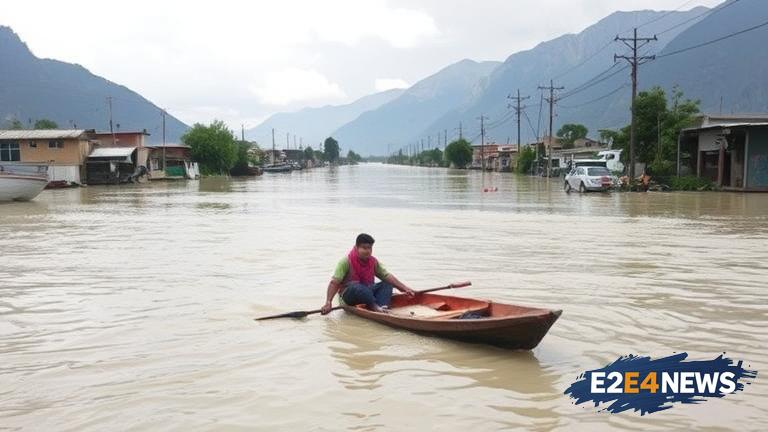The recent floods in Pakistan have caused widespread devastation, with thousands of people displaced in the province of Punjab. The government of Gilgit-Baltistan has sought Rs7 billion in aid to help mitigate the effects of the disaster. The floods have been caused by heavy rainfall in the region, which has resulted in the overflowing of rivers and streams. The affected areas include the districts of Rajanpur, Dera Ghazi Khan, and Muzaffargarh, where thousands of people have been forced to leave their homes. The Pakistani army has been deployed to assist in the relief efforts, with troops helping to evacuate people from flooded areas. The government has also established relief camps to provide shelter and food to those affected. However, the scale of the disaster is massive, and more aid is needed to help those in need. The Rs7 billion aid package sought by Gilgit-Baltistan will be used to provide relief to the affected people, including food, shelter, and medical care. The floods have also caused significant damage to infrastructure, including roads, bridges, and buildings. The agricultural sector has also been severely affected, with crops destroyed and livestock killed. The Pakistani government has announced plans to provide compensation to farmers who have lost their crops. The international community has also been urged to provide aid to help Pakistan deal with the disaster. The United Nations has launched an appeal for $160 million to help provide relief to the affected people. The Pakistani government has also established a fund to collect donations for the flood victims. The floods have highlighted the need for better disaster management and preparedness in Pakistan. The government has been criticized for its slow response to the disaster, and there are concerns that the relief efforts may not be enough to help those in need. The floods have also raised concerns about the impact of climate change on Pakistan, which is considered one of the most vulnerable countries to the effects of global warming. The Pakistani government has announced plans to plant 10 billion trees to help mitigate the effects of climate change. The floods have also caused significant disruption to daily life, with schools and businesses closed in the affected areas. The Pakistani army has been working to restore communication networks and provide medical care to those in need. The government has also announced plans to provide psychological counseling to those affected by the trauma of the disaster. The floods have been described as one of the worst disasters to hit Pakistan in recent years, and the relief efforts are expected to continue for several weeks. The international community has been urged to provide aid to help Pakistan deal with the disaster, and the Pakistani government has announced plans to provide long-term support to those affected.
